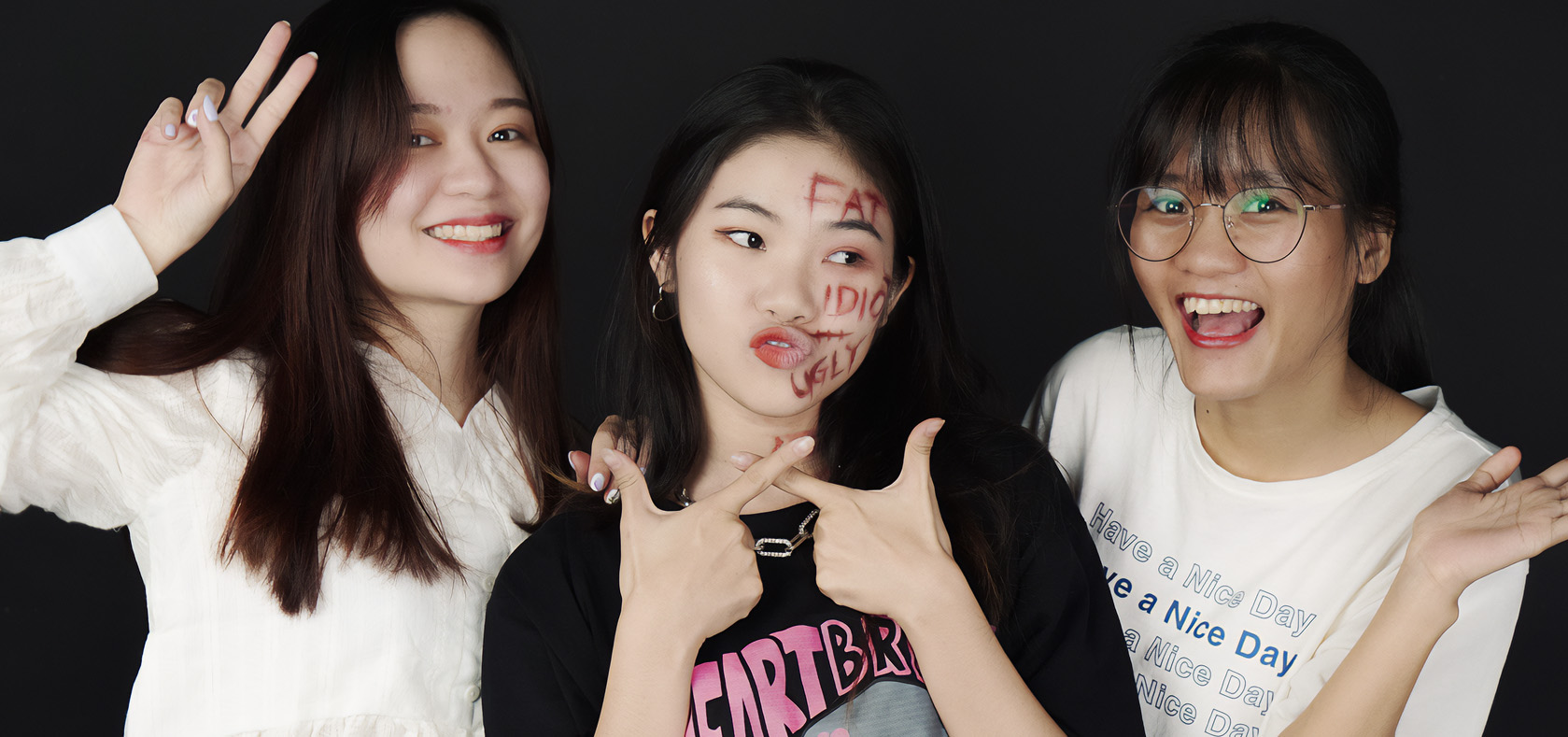Vietnamese Youth Organize Creative Projects to Advocate for a Safe and Equal Cyberspace
Date:
Author: Hoang Thao

Ha Noi, Viet Nam — UN Women, in partnership with the Center for Sustainable Development Studies and CED Link, supported the efforts of 71 youth leaders, content creators and change-makers across Viet Nam to develop innovative social media projects aimed at strengthening positive digital engagement and at combating cyberharms. Within three months, the projects achieved incredible results, receiving a collective 4.9 million views, 19,100 comments and 4,382 shares across all major social media platforms commonly used in Viet Nam.
In October 2021, 22-year-old content creator Ly Tu Nha and other youth leaders participated in a virtual training organized by UN Women, the Center for Sustainable Development Studies and CED Link in Viet Nam with support from the Government of the Republic of Korea. The training deepened young participants’ knowledge and understanding of gender equality, cybersecurity, and Viet Nam’s current social media environment. The training also increased the participants’ skills in mobilizing social media’s potential to engage other youth and Internet users in countering cyberharms while promoting gender equality.
After the one-week training, Nha and her friends developed a social media project to combat online sexual violence and cyberbullying targeting adolescents, receiving technical support from UN Women. In November 2021 alone, their project “HOPE” had reached more than 300,000 people through the dissemination of videos, digital posters, factsheets and other media.
Online violence against women and girls tends to be motivated by misogynistic and hateful sentiments. According to research conducted by the Vietnam Program for Internet & Society, 78 per cent of the 1,000 persons that were interviewed for their study reported that they have experienced or are aware of the situation of hate-speech across social networks in Viet Nam.[1] This is argued to be a potential long-term issue for Internet users, particularly women and girls, which has the potential to polarize and diminish social cohesion across societies.
“I was a victim of online sexual harassment and body shaming several years ago. Therefore, I understand how it damages the survivors. Even if it's just words, it lasts forever,” said Nha in an interview with UN Women Viet Nam Country Office in December 2021.
Viet Nam has one of the highest rates of Internet use in the Asia and the Pacific region. As of January 2021, the number of internet users reached 69 million people, which represents close to 72 percent of Viet Nam’s population.[2] With pandemic-related social distancing measures in place, people are staying home and spending more time on the Internet than ever before, making safety and security in cyberspace an urgent issue. Considering the rapid digitization of Southeast Asia, digital platforms are increasingly becoming new frontiers of conflict in the region.[3]
“The spread of disinformation and hate speech against women and minority groups disrupt the social fabric of societies. We have also seen that there are many opportunities to counter violent practices and to promote civic engagement through positive digital engagement,” said Gaelle Demolis, Acting UN Women Representative in Viet Nam at the time of the interview.
For persons with disabilities (PWD), the Internet and digital platforms are important tools for learning, research and self-development opportunities. These tools are valuable information resources and can contribute to bridging access gaps. However, they also carry risks for PWD, including disability hate speech, sexual violence and other cyberattacks and cyber-enabled crimes to which they are disproportionately exposed.
Nguyen Manh Cuong, a 27-year-old businessman and chairperson of the Deaf People Club in Dak Lak, also participated in the training. Together with six other PWDs who joined the training in October 2021, Cuong led a campaign called “Speaking hands,” which included a series of video clips on Facebook. The campaign aimed to combat hate speech against PWDs and to guide his peers to protect themselves on digital platforms.

“The training is super helpful. I will keep sharing the learned knowledge and skills with my friends in the club so that we can protect ourselves and be safer online. Deaf children will find it especially helpful to learn to avoid threats and the psychological shocks that I faced as a child,” said Cuong.
About UN Women and Cybersecurity
Since 2021, UN Women has been pioneering a new project on Women, Peace and Cybersecurity with the ambition to gain new insights on novel security threats that are promulgated through digital platforms and online engagement. There is a need to understand how digital platforms are increasingly used to drive conflict and incite violence, and to strengthen the capacities of women, men, girls, and boys to promote peace and positive and inclusive digital engagement. This training in Viet Nam is one of the first initiatives to strengthen the capacities of youth in Southeast Asia on gender-responsive cybersecurity. Similar activities have also been carried out in the Philippines.